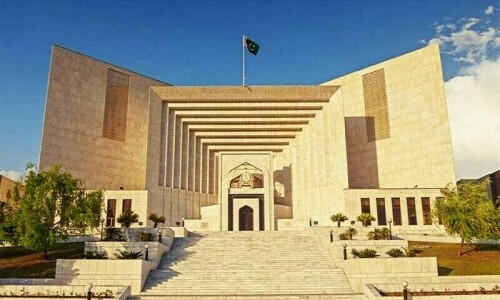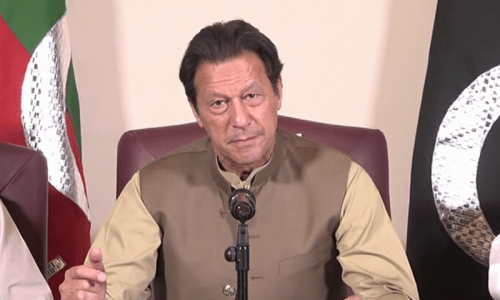SHARM EL SHEIKH: Recycling radioactive waste from nuclear power has security and cost challenges but the UN International Atomic Energy Association (IAEA) would be able to monitor the process should the United States take that path, the IAEA head said this week.
The administration of US President Joe Biden sees the expansion of nuclear energy as a critical in tackling emissions linked to climate change in the world’s second-biggest greenhouse gas emitter, and views recycling as a smart way to both boost domestic nuclear fuel supplies and reduce waste.
The US Energy Department’s Advanced Research Projects Agency-Energy, or ARPA-E, aims to develop a dozen projects to recycle spent nuclear fuel. Last month it granted $38 million for reprocessing to companies including GE Research, the development part of General Electric Company.
When asked about the US exploration of reprocessing, IAEA Director General Rafael Grossi downplayed the chances it would become a reality anytime soon.
“I don’t see many really looking seriously into reprocessing,” Grossi said in an interview late on Wednesday at the COP27 climate summit in Egypt.
“Reprocessing is a very difficult technology that requires a lot of infrastructure.” Grossi added that “of course it has a proliferation angle.” Reprocessing involves converting plutonium and uranium in waste into new nuclear fuel. Proliferation experts warn that the practice could provide new targets for militants looking to make a crude nuclear weapon. While France practices reprocessing, supply chains in the United States could be longer and more vulnerable, experts say.
Former US President Jimmy Carter had halted reprocessing of nuclear waste in 1977, citing proliferation concerns. Former President Ronald Reagan lifted the moratorium in 1981, but high costs have prevented plants from opening.
A US Department of Energy spokesperson said the department “examines all sides of the nuclear fuel cycle at the R&D stage to help enhance fuel performance, reduce waste generation, and limit proliferation risks, and beyond research always works with the IAEA to move nuclear forward.” Grossi said if the United States pursues reprocessing, the IAEA will monitor it to ensure it is safe.
“Nobody will be doing reprocessing without the IAEA being involved,” he said, noting that any nuclear waste recycling North Korea is undertaking is an exception.
The United States has spent billions of dollars over decades on a project at Yucca Mountain in Nevada to store nuclear waste. But former President Barack Obama shut Yucca after local opposition. The waste is now stored at reactors across the country in pools and in casks of steel and concrete.
Nuclear power has seen increasing interest from countries and companies looking to cut emissions and boost energy supplies, Grossi said. But he added he does not believe an expansion of the industry would increase threats of proliferation or mishaps.
“Maybe I would have to fight for a bigger budget, I don’t know, and countries are very tight on that,” Grossi said. “But it wouldn’t be a technical problem for us.”
Published in Dawn, November 11th, 2022














































